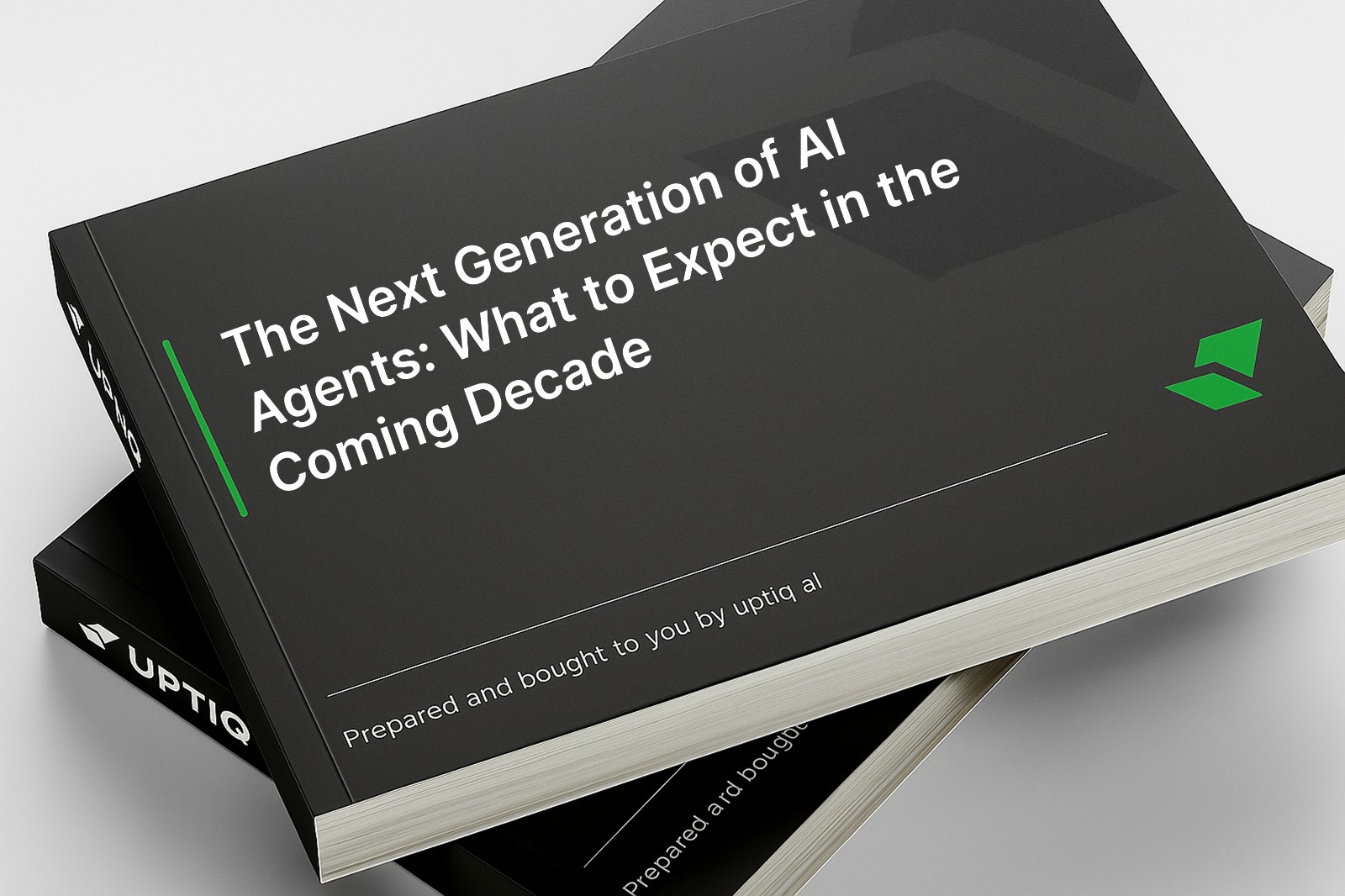Series B:
Uptiq raises $25M to add AI agents to bank workflows
Read More
-


Artificial Intelligence has already reshaped financial services—driving efficiency, improving compliance, and enhancing customer experience. But the AI of today will look primitive compared to what we will see in the coming decade. Next-generation AI agents are set to move beyond automation into intelligent collaboration, strategic decision-making, and predictive guidance. For financial institutions, this evolution will not just be a technological upgrade—it will redefine how they operate and compete.
So, what can we expect from the next wave of AI agents in financial services? Here are the trends and capabilities likely to dominate the 2030 horizon.
Today’s AI agents are largely reactive—they respond to customer queries, flag anomalies, or automate workflows when prompted. The next generation will be proactive advisors.
This shift will turn AI from a tool into a trusted collaborator for both financial professionals and customers.
The future of financial services will not rely on a single “super AI,” but on multi-agent ecosystems where specialized AI agents interact seamlessly.
This trend will reduce friction in traditionally slow processes like loan approvals, claims processing, and cross-border payments.
Personalization is already a buzzword in FinTech, but next-generation AI agents will take it much further. By integrating behavioral data, market conditions, and even real-time life events, AI agents will create hyper-contextual financial services.
For example:
This level of personalization will blur the line between financial advisor and AI, making services more adaptive and inclusive.
Trust will be the make-or-break factor for AI adoption in financial services. Regulators, institutions, and customers alike demand transparency. Future AI agents will be explainable by design, capable of justifying their decisions in human-understandable language.
This will allow financial institutions to innovate without compromising compliance or customer trust.
The fear that AI will replace financial professionals is giving way to a more balanced vision: AI as a co-pilot.
Rather than eliminating jobs, next-generation AI agents will augment human expertise, allowing professionals to focus on higher-value, strategic tasks.
Looking further into the decade, as quantum computing becomes commercially viable, AI agents will tap into unprecedented computational power. This will allow for real-time optimization at massive scale:
While still in its infancy, the intersection of quantum and AI has the potential to fundamentally reshape financial modeling and risk management.
The rise of next-generation AI agents will force decision-makers to rethink strategy:
At Uptiq.ai, we see this future taking shape now. Our platform enables financial institutions to design and deploy custom AI agents that evolve with their business. By combining modular automation with bespoke intelligence, we help firms:
In short, we help institutions prepare not just for today’s AI—but for the next decade of intelligent, proactive, and trustworthy AI agents.
The coming decade will mark a profound transformation in financial services. AI agents will evolve from reactive automation into proactive collaborators, capable of anticipating needs, personalizing experiences, and operating transparently within complex regulatory frameworks.
Financial leaders who embrace these next-generation capabilities will not only improve efficiency but also redefine customer trust and market competitiveness. Those who hesitate risk being left behind in an industry that is rapidly moving toward an AI-first future.